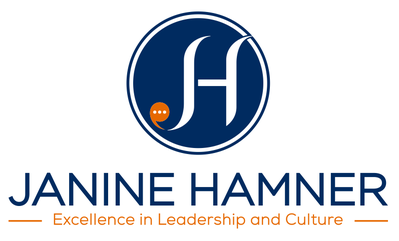
Dive into the world of Millennial Therapy in this captivating episode of “The Cost of Not Paying Attention” with your host, Janine Hamner Holman. Join Janine as she welcomes Tess Brigham, a renowned psychotherapist and certified coach, to explore the unique challenges Millennials face today. From navigating the quarter-life crisis to managing burnout and finding work-life harmony, Tess shares her expert insights and practical advice. Whether you’re a Millennial seeking guidance or someone supporting them, this episode offers valuable takeaways for everyone. Tune in and discover how to thrive in the modern world.
GUEST: Tess Brigham | LinkedIn | Instagram | YouTube | Twitter/X
HOST: Janine Hamner Holman | [email protected] | LinkedIn, Facebook, and Twitter | Subscribe to my Newsletter! | Book me to Speak!
—
Listen to the podcast here
Millennial Therapy: Finding Work-Life Harmony With Tess Brigham
Defining the Quarter-Life Crisis
Janine: Welcome to The Cost of Not Paying Attention. I’m your host, Janine Hammer Holman. I am so excited for our guest today. Tess Brigham has been dubbed the Millennial Therapist by CNBC. She is an expert psychotherapist, a certified coach, a TEDx speaker, and author of the book, “True You: A Step by Step Guide to Conquering Your Quarter-Life Crisis” which I love. I love the idea of a quarter-life crisis because I don’t know about you guys, but I definitely had a quarter-life crisis at 25. Then I had a little crisis at 40, and now I’m approaching another milestone year. So, yeah, I’m going to try not to turn it into a therapy session, but welcome.
Tess: Thank you. Well, thank you so much for having me. With the quarter-life crisis, I think people get very hung up on the ages. What it really is, is that first crisis you have, whether it’s at 22, 23, or 32, 33. That first crisis where you start to ask yourself some bigger existential questions like, why am I doing this job? What is the purpose of my life? When you’re young, in your bedroom in high school, your life can be whatever it’s going to be. It’s not until you start living it that you realize, oh wait, that fantasy I had in my head of what I thought work or relationships or adulthood was going to be like is nothing like what it is. I now have to figure out how to shift my standards, expectations of myself, and redefine success.
Janine: As I was turning 25, I was living in New York City in a one-bedroom apartment with two other people, working at a job that I did not love. Our furniture – our couch, was given to us by my parents, our bookcases were cinder blocks and plywood, and I had a piece of furniture bought at a yard sale for $25.00. I thought, this is not how grownups are supposed to live. At 25, which is a very grownup age, I had a big conflict between what I thought adulting was going to be and how I was actually adulting. So, I changed my life, moved back to Boston, and got a different job. And changed everything in my life. I want to talk about what happens at that point in our lives, whether our listeners are at that point, have employees at that point, or have kids at that point. Let’s start with something you have realized, probably with your clients or in your business. What’s one thing that either you or they have been failing to pay attention to, and what problem is that causing?
Tess: What I see a lot of, and struggle with myself, is there’s just too much information, too many apps, and too many pieces of technology. My clients are struggling to pay attention to what they’re taking in and how that’s affecting them.
Janine: So, they’re not paying enough attention to the things they’re paying attention to?
Tess: Exactly. Asking questions like, do I need to be on TikTok right now? Do I need to take in all these videos? Is it helping me in any way, or is it draining me and making me feel bad about myself? One client, a new mom, works full-time in tech, her husband works full time in financial tech. They’ve got big busy lives. For her, she has to really focus her entire time at work because she leaves early to pick up her daughter, which is really important to her. We talked about what she can give up, and she doesn’t want to give that up. So what do you need to do to not be so overwhelmed with work when you are picking up your daughter from day care.
Janine: And?
Tess: I recommend people do an audit of their days. Get a sense of what you’re doing every time you go on social media or get distracted. Audit yourself hour by hour and ask, how do I feel? We value checking off the boxes of the hashtag hustle but don’t focus enough on how we feel about our job, people around us, our life, or where we’re living.
Mental Health in the Workplace
Janine: One of the challenges of the time we are living in is burnout. The Society for Human Resource Management released a report on mental health in the workplace. They found that 44 percent of us feel chronically burned out from our work. These rates are often worse among younger people. We are more susceptible to those kinds of burnout rates when we are younger. As we age and mature, we find our niche better. Organizations are looking at what they can do about it. When you’re looking at the folks you support, what are their biggest concerns about work-life balance or work-life harmony? Is it those kinds of issues? Is it sort of organizational culture? How would you categorize it?
Tess: I think it’s all of al those things. The challenges are unique to where the person is in their life. The client I mentioned is in a tough time. This is going to be her life for a while with a very young child. I have a teenager now, and it’s different. We are now four years post the beginning of COVID, and it’s like we went through a difficult, traumatic experience, and the world said, well, keep going. There was no pause. It’s not realistic, but what we needed was to press pause for a month and do nothing. Things were so stressful, and it was different for different people. Some people weren’t working at all, others were working till midnight, and putting the kids to be, and running around just exhausted by the entire thing. We’ve been going from one difficult situation to the next, to the next, to the next. And it’s not like in our world we haven’t been going from difficult situations, we’ve always had wars, we always had all of the things we’re seeing right now. And in someways because we can see everything, and everything is reported on, that’s really good, because it’s forcing people to confront things that used to be in the shadows, and are now coming out- which is good. But the problem is we weren’t meant to see all of this. Our brains hearing about violence, crime, and wars consistently isn’t healthy. And the way the world is, it just said, “Ok well… this is what companies and people do, they go ‘ok, here are all these tools.'” Companies and people offer tools like more sleep and exercise, but then sit back and expect people to figure it out. I’ve seen the studies, companies think if they just talk about mental health at work that’s enough. And it’s like, no. You actually have to do the things you need to do to help people. You really do.
Organizations resist change, but respecting employees' time and needs shouldn't be a debate. It's basic human decency. Share on XJanine: It’s such a challenging time for individuals and organizations. The CEO of Korn Ferry said we have undergone more change in the last four years than any person alive has in our lifetimes. We’ve gone through this intense period of all kinds of changes and stressors, and our brains crave certainty, which is the thing that we lack. Unfortunately it’s not slowing down. The pace of change is accelerating. How do we manage ourselves well in the face of this pace of change? This kind of change? It’s exhausting and people are looking to the workplace for a sense of belonging. I had a CEO ask me, “what’s the deal about belonging in the workplace? Who cares? I never had to think about it or care if people felt like they belonged, what?” And I said I have theories about why this is that we have moved from collectively having belonging in our neighborhoods, in our families, in our houses of worship, and in all of the places where belonging used to be created and a number of those institutions, including family, are less stable than they once were. Or felt like they were. And so, where do we spent the most time? It’s at work. So people are now looking to the workplace for that feeling of belonging. And it has totally changed the way that organizations think about themselves, leadership, think about training. And a lot of it is actually being pushed by the millennials and the Gen Z’s.
Tess: Yes, the CEO asking about belonging is interesting. Belonging is about being able to be authentically who you are. Once upon a time, this was unheard of, but there were people who never felt they belonged. Belonging is about being able to be authentically who you are. So that means that you would prefer people use “They / Them,” that was just unheard us and people didn’t think about it. But there were people that were closeted, there were people that becuase they were never going to move out of the secretary pool, all of those things that these young people are coming in hot and saying, what a crazy idea. If I’m going to give you my time, I want to be paid for it and I would also like to be treated with respect because I’m a human being. Gen Zers are not asking to be CEOs, they don’t want to take over, they are willing to pay their dues, it’s got nothing to do with that. The don’t want your job. What they want is, if you’re gonna work extra hours, that work should be paid. What they want is for you to respect their time. All of these changes Gen Z is asking for when you get rid of all of your hostility and anger and frustration with all of that and how it was for you, if you can let that go, and if you can really stop and think about it, what are they really asking for? They’re asking for fairness. The problem has been is that is that there’s never been an American dream for them. My grandfather was part of the American Dream, he was a white man in the 1940’s and absolutely that’s it. But unless you were a white man born in a certain era in the US, the American Dream didn’t exist. It’s never existed. But we’ve been selling it to young people for years. And so Millennials came into the picture and went, ‘Oh wait a second. You were selling us this but- and I worked really hard but now there’s a huge recession and I can’t get a job, and I’ve just been working so hard,’ Right? And now with Gen Zer’s they’re coming in and saying, ‘We were isolated for almost two years, everything in our lives has been disrupted, quite frankly we need a little bit of a break. And we are not going to put up with a boss who is treating us a certain way.’ I think that all of these things are very good. And they’re very important but they are hard and difficult and they are change. And change is uncomfortable. And there’s a lot of people who are very comfortable where they are and have been for a long time that aren’t too happy to be uncomfortable. Now I don’t know the CEO that you’re talking about but my guess is would be even if he made all these changes, he’s still gonna you know, he’s not gonna lose any money- he’s gonna be ok. It’s a little bit of, ‘we’re gonna stop accommodating one person. This country, we’ve been accommodating and making it really, really nice for one person. One kind of person. And- one kind of person within that one person. Right? The extroverted, tall, good looking, white male with privilege.
Gen Z wants fairness, respect, and authenticity at work. They're not asking for the CEO position; they just want to be valued. Share on XCorporate Responsibility and Employee Wellbeing
Janine: There are so many ways I can see this playing out in the work place. And, I loved it when you were talking about, ‘If we can put down the I had to suffer, I had to pay my dues, I had bosses who were really mean to me, I had to suck it up…’ Really what we all want, is regardless of our age, or our gender, or our ethnicity, or our sexual orientation, or our “fill in the blank.’ Regardless of who we are, and how we think of ourselves, we want mutual respect. We want dignity. We want fairness. We want to be treated fairly. And honestly? Most of us, if we’re being mentally healthy, we want to treat others fairly. And so, really what they are demanding is nothing different than, ‘I always wanted a boss who cared about me as a an individual not just as a contributor or work. I wanted somebody who cared about my career path. I wanted somebody who didn’t email me at 3am and expected me to respond.’ Right? That seems like that’s how people should opperate. And yet, there is all of this push back against things that when we take our emotions out of it and we take our own history out of it, like well yeah- ‘that’s actually not an unreasonable thing.’ Right? And so do you think that part of the challenge is that you know, organizations like the rest of us, don’t like change. Is it that? Is it that there’s so many different pieces of change that are being asked for or demanded. Is it the way that the requests are being framed? Is it the,’I’m not doing that.’ VS. ‘You know what, it would work a lot better for me…’ So when you think about the nature of the conversations we’re having with young folks today. Can you pull apart like or frame the conversation differently? Maybe if you put it inside of a context of, I get it that there’s a lot of thing that we’re looking at, could we put them in order over the next five years? This is what we’re going to be looking at. Just sort of putting on your bigger picture hat. How do you see that?
Tess: Yeah, I think it’s all of the things you said together. And if we look at our culture as a person, in a sense, our culture is a bit traumatized. We’re still recovering. Now, we’re try to keep it going. Now we’re four years into this, and we haven’t done anything to fix it. We’re continuing to burn out. And then this group of young people, who don’t have your life experience, don’t have your background, come in saying, “No, I’m not going to do that.” And people who normally could hear it, maybe can’t really hear it. I think that’s definitely one factor. Not to get too political, but it’s corporate greed. I’m sorry, it’s corporate greed. Our food is so expensive, it doesn’t need to be this expensive. It shouldn’t be this expensive.
It’s a lot of corporate greed. It’s a lot of people at the top. We’ve got a handful of people who own everything and have all of the money and so therefore they control everything. Your boss and your boss’s boss don’t want to be pushing you this hard, but each person is getting it from the top. It is going to require companies to decide to put people over profits. For years, we’ve put profits over everything, and for years, and years, and years. And it just doesn’t work anymore. You have to trust that if you have good people, you will make profits because you won’t be spending on turnover. That alone will give you profits.
We’re not paying people enough money to live. Home prices have gone up by 100% since the 1970s, but wages have only gone up by 67%. It’s not avocado toast and lattes keeping young people from buying homes; it’s that. When I get challenged, especially by older Gen Xers and baby boomers, I ask them if they felt they could work their way up, pay all their bills, and eventually buy a home. Every single one says yes. I tell them to imagine entering the workforce today. You don’t make enough money to live, you’re being mistreated, and there’s no guarantee of a better life or buy a home or afford children, all of those kinds of things. I mean, you have to laugh at this.
Millennials and Gen Z struggle with the rising cost of living. It's not about avocado toast; it's about fair wages and affordable living. Share on XMillennials have dogs, Gen Zers have plants because they can’t afford more. We really have gotten to this place where people are like, ‘I can’t afford to do anything.’ I turned 50 last year, own a home, have a nice life, but even I wonder where all my money is going. Why is my business paying more taxes than Amazon? I start to feel resentful of the systems. How is this happening? Why is food so expensive? My son goes to private school because he’s neurodivergent, and the school system doesn’t have anything for him. My husband and I make a lot of money but never really take vacations. We can’t. And it’s simply because the cost of living versus earnings is out of whack. Healthcare is another huge issue. Companies stopped giving us benefits. First, it was pensions, then matching 401ks, now they hire at 32 hours a week to avoid giving health insurance. Then it was these part time jobs with no health insurance. They keep chipping away at us. Young people haven’t been in this pot of water that’s slowly been turned up on us; because we’re use to it. They’re just getting in and saying, “Oh, this is hot. This sucks.”
Janine: This doesn’t work for me.
Tess: Yeah, exactly.
Generational Differences and Work Expectations
Janine: So, you mentioned being on Instagram this morning. I also want to touch base with, given that this is the demographic you’re working with, what are you seeing? I have a lot of opinions about social media. There’s no amount of money in the world that would make me go back to being 13 or even 25 again because of social media and trying to keep up with everyone else’s beautiful life. They’re not posting about their struggles, just the highlights. What do you think about the role that social media is playing in our collective mental health, especially in the mental health of younger people?
Tess: We now know a lot more about the effects of social media. Studies show that people on social media for longer than 20 minutes a day are more likely to show signs of depression and anxiety. There is an absolute correlation between social media use and mental health issues.
Janine: I’m looking at puppies and kittens mostly.
Tess: That’s what I was looking at this morning too. Lots of dog videos. There’s a correlation between social media use and mental health issues. It’s important to recognize this. I think there is a place for social media; it’s not going away. And I think in our world and in our society, how we deal with things, ‘OK- don’t do drugs!’ Or, ‘Don’t do this!’ Telling kids to stop using it is ridiculous. This is how they communicate. I can’t even get my Gen Z clients to email me; they text. My millennials will email, but Gen Z communicates via Snapchat and other platforms. They need social media, so just saying stop isn’t good enough. It’s about paying attention to how it affects you.
Because there is so much information, there is so much coming at us, our jobs are really about being able to curate almost like a, “sanity bubble” around ourselves. What do I need to do in my life, and in my world to protect myself from things that bother me, trigger me? There are certain things that people might see on social media that bothers them and it doesn’t bother me. So it’s about taking a moment and asking youself, ‘Oh I’ve been on Instagram and this is the third time and I always reach for Instagram everytime I have to wait for something.’ What happens if I stop? What happens if I stop doing that? What happens if I instead of just bursting through the door when I get home, and just kind of lay all my crap out to everybody. What if I processed some of it? Or kind of got to a better place with it?’ And social media is big part of our lives and I think there’s a lot of pluses to it. You see people you normally would lose touch with, there’s no way you’d say in touch with them. And you learn new things. You get exposed to new things. There’s a lot of good stuff, but you have to be the one to control the noise. And you have to decide where am I turning up the volume and where am I turning it down? Based on me and what works for me and my life, and where I am in my life right now. And that is not an easy thing to do. But it feels very overwhelming to people so they just don’t do it.
Janine: I love it that we’re sort of, we’re coming back to where we began in this conversation. So, you know it sounds like, one thing that we could all do is kind of keep a emotion checklist as we’re spending sometime on social media. And asking ourselves, ‘How does it make me feel?’ Are my emotions going up and up in a positive direction? Or are they going down in a negative direction? And if they’re going down in a negative direction, it might be meaningful to notice, ‘Am I worried about me, or am I worried about the world?’ Cause there’s things I can do if I’m worried about me. If I’m worried about the world, then there’s maybe there’s other things I could do or other things I would decide.
My husband and I were watching a couple of series from start to finish, so I am now on my third run of through Madame Secretary. And I love this show. And my husband said to me, ‘What is it with you and Madame Secretary?’ And it’s like, well, it’s a hot woman who is in charge, and running stuff. She’s smart and she’s powerful. Plus, she’s in this marriage with the person who she’s actually married to in real life. And the family dynamics and the politics. And I was a political science major in college and so pay attention to all of that. I love! And my husband says,’But you’re not paying that much attention to politics right now.’ And I said, ‘I know because politics right now scares the ever living – out of me.’ And I don’t know how to impact it or what to do about it. I’m very concerned about what’s gonna happen four months down the road … whenever November is. And what’s happening in the world geopolitically, so it’s much more calming to watch something that is not based in something real, and I’ve watched it before so I know how its all gonna turn out. I don’t know anything about what’s gonna happen in November. And I have a lot of fear around the fact that I don’t know anything about it. And other than donate money, and work on getting out the vote, there’s really not more than I can do.
Tess: Yeah, there’s a lot of shows like this right now. Why do you think Millennials are watching friends? This is a bit of, ‘We have to find things that we enjoy, that give us something, that make us happy, that feels predictable to us because it just happens in this little world.’ And I can escape. I think a lot of it is we want to escape. And there is a lot of value in escaping. But you want and a balance to it. So are you going on Instagram to escape the reality of your horrible relationship? Or are you going on Instagram to escape? And that’s the question you have to ask yourself. That’s why I’m saying, it’s really about you and what’s going to work for you. What drives me crazy is there are so many articles about burnout, right? How many articles are there about the top ten tips on how to maintain your burnout? We know what to do. We all know what to do. But the problem is before you can make these changes, you have to make some mindset shifts first. You have to get out of that #Hustle culture. And the mindset that that culture is the best the best way to go. You have to redefine success for yourself. You have to figure out what are you willing to sacrifice and not sacrifice. You have to take some time and really do that work for yourself, of like, what so I want? And then what happens is people go, ‘Well I don’t know what I want. And now I feel overwhelmed, so I’m going to go back to putting my putting my head in the sand.’ I always tell people, this is why it’s good to seek help, because you have someone who can help you and guide you through the process. But if you don’t want to go that route, the best thing to do is pick small consistent things you can do, and just keep doing them. Our lives are made up of little things we do everyday. The choices that we make, so you just have to start picking one thing that you you’re going to do today differently. Even if it’s, ‘I’m not going to go on instagram when I’m waiting on lines anymore.’ If that’s the one thing that you do, great! Just do that and keep doing it. But the problem is that we are used to getting everything fast furious, and instantaneous. And it takes a while to see results for these things. So we’re kind of like, ‘I’m not getting this fast enough. I want it, I want it , I want it.’ And then we get upset.
You have to be the one to control the noise and decide where you’re turning up the volume and where you’re turning it down based on what works for you and your life. Share on XThe Importance of Small Consistent Changes
Tess: That’s something we see with young people in the workplace. Older generations get mad because they think young people want to run the show immediately. Well, no. They’re just use to things happening really quickly. It’s about leveling expectations. Careers are long marathons; they take decades to build. That what these bosses need to do. Managers need to communicate that to young employees and help them find purpose and excitement in their current roles. And ask their younger employees how they can enjoy what they are doing now? And how they can make that more interesting. So that they feel like they have more purpose and excitement and all of that, in their day. But what’s happening now is people are just going, ‘Ugh, these people suck.’ or they get mad or they storm off. And that’s never going to work. And they are the ones coming in. My favorite are these statistics, ‘30% of recruiters are saying their not hiring any Gen Zers.’ And I’m like, how is that going to work for you? You’re just gonna not hiring young people? You’re just not going hiring and entire generation of young people? And these are your kids! I want to shake them, because I get parents that reach out to me all the time and the parents are so perplexed by what’s happening. And it’s like, what are you doing in your own business? Are you the head of something? Are you being kinder to the people that are coming in? But no.
Janine: And so, if we can remember. If we decide that we are going to make it a priority to remember, that, ‘If it’s my first job.’ Or even if it’s my first or second or third job, I’m going to get to remember that it’s not going to happen as fast as we want it to happen. I was just working with a team lead the other day. In a fairly large organization that I’ve been working with now for several years and she and I were talking about, there is a major change that is happening. And they’re going to end up outsourcing a significant function of the business and it’s actually, she believes, it’s totally the right thing to do. And the people who’ve been managing this believe it’s the right thing to do, and so everybody’s really excited about it. And when we were talking about how this is happening from, ‘No, no, no, no,’ to ‘maybe’ to ‘yes.’ And this has taken about five weeks. And this is a pretty big company. And before this decision, maybe to yes would have taken a year. And so that’s part of what we’re really looking at, is somethings in this company are starting to change and this manager is in her mid-thirties. And so she’s been frustrated with the pace of change. So I was saying, ‘Well alright. Let’s look here. Now we’re in a situation where this thing is has changed really fast.’ Five weeks is really fast in a large organization with multiple offices around the country and a thousand employees. And let’s take a beat and be really appreciative of how fast this has gone AND how unusual it is because something is going to come up tomorrow that your going to get frustrated with that the company isn’t doing it or isn’t doing it fast enough and we’re gonna be back in the year long process of getting to maybe and then yes.
And one of the other things we were talking about is that young people will have ideas. And she was falling into this trap. She would have an idea, and she would say to her boss, ‘Hey I think we need to do…’ and then the boss wouldn’t do it and then she would say to me, ‘he’s not listening to me.’ And I would say, what’s your evidence that he’s not listening? And she’s like, ‘well he didn’t do it.’ And I would say, just because he didn’t do it, doesn’t mean he isn’t listening to you. And we as the older generation also get to remember to say, ‘I heard you. What you said was, you think we need – and we’re not going to do that.’ Or, ‘We’re not going to do it now.” Or, ‘We’re not in a position to do it.’ Or, ‘We’re not ever going to do that, because it’s not our mission. Our mission is to make shoes and you think we need to make watches. And we’re not going to make watches.’ We forget to close those communication loops. And we forget to help people understand what is fast for us here, looks differently than it does elsewhere. There are all kinds of cultures and processes and how things wok. So how do things work here? So that then people get to decide, ‘does that work for me?’
Tess: And the other part of this is too is what you’re talking about the closing of the loops. It’s the recognition piece that is really important. Millennials brought the need for recognition to the forefront. And ten years ago when I was working with Millennials all the time, people would ask, ‘What is up with them? They want a prize for everything.’ It’s not about trophies; it’s about feeling seen and acknowledged. How hard would it be to thank your team every week? A simple thank you goes a long way.
Recognition and encouragement are crucial. My husband works for Pandora, and they are great at acknowledging employees’ achievements. This creates a positive work environment and fosters loyalty. As a culture, we’re becoming more emotionally intelligent, and as millennials rise in the ranks, these practices will become more common. But for now, thanking your team and acknowledging their efforts can greatly improve workplace relations. I think these things will naturally change because we as a culture and as a country, we are getting more emotionally intelligent and we do understand. Young people are really good at naming their feelings. So you son’t have to spend a lot of time on that for them it’s a lot of coaching of managing one decision at a time. So I do think that as Millennials rise up in the ranks, I do think that some of these things are going to get better. But in the meantime, if you want to know what you can do to improve relationships in you company? That’s it. Thank everybody.
Recognition matters. Simple acknowledgements can go a long way in boosting team morale and retention. Share on XJanine: Absolutely. I’ve been trying to keep our podcast episodes to 30 minutes, but this conversation has been so engaging… Tess, thank you so much for your deep wisdom. If you’re in the age demographics Tess works with or have people in your life who could use her support, please reach out to her. Her contact information is in the show notes.
Tess: Thank you so much for having me. This was such a great conversation.
Janine: Absolutely. I am Janine Hammer Holman, and this has been The Cost of Not Paying Attention. Remember, great leaders make great teams. Until next time.





